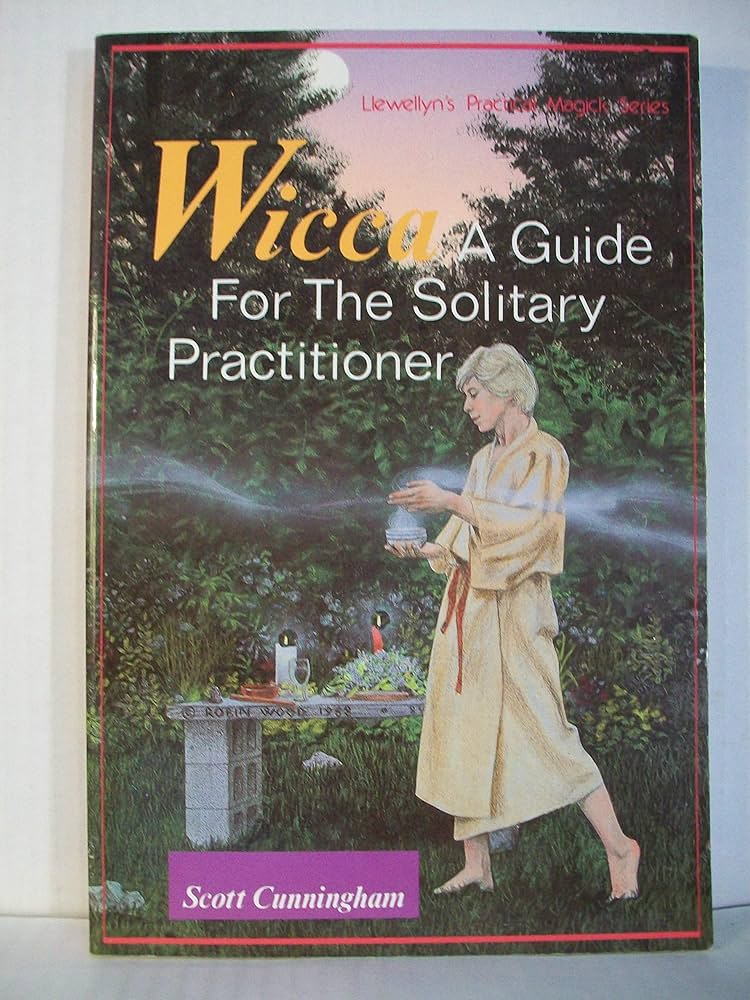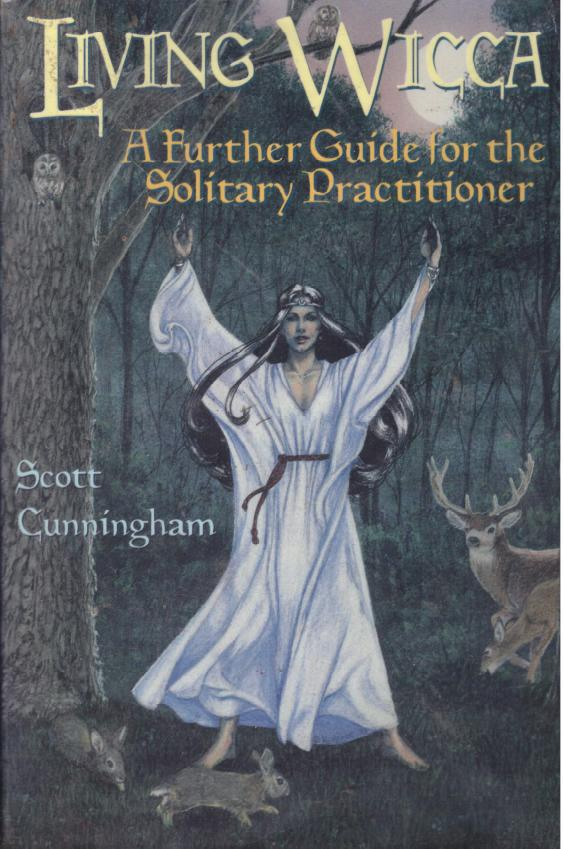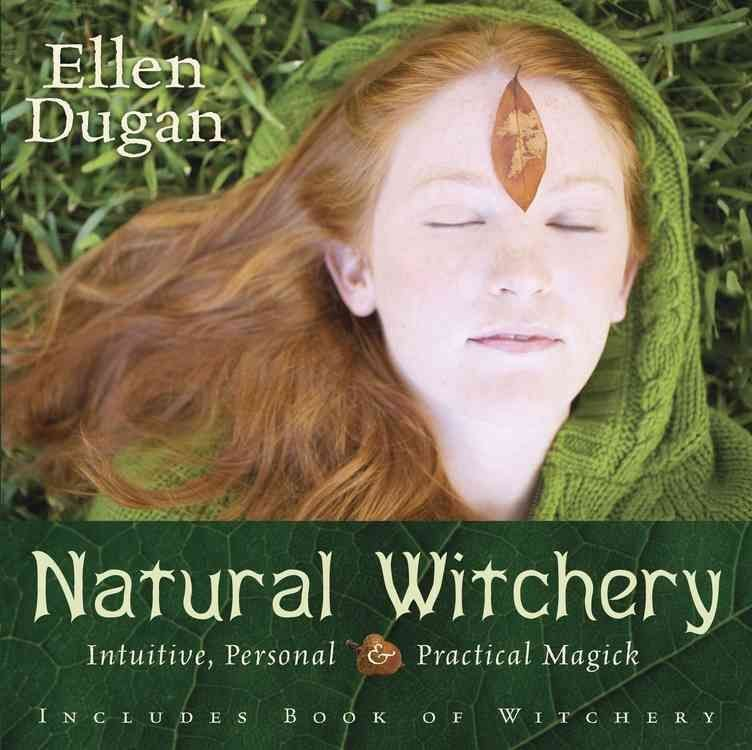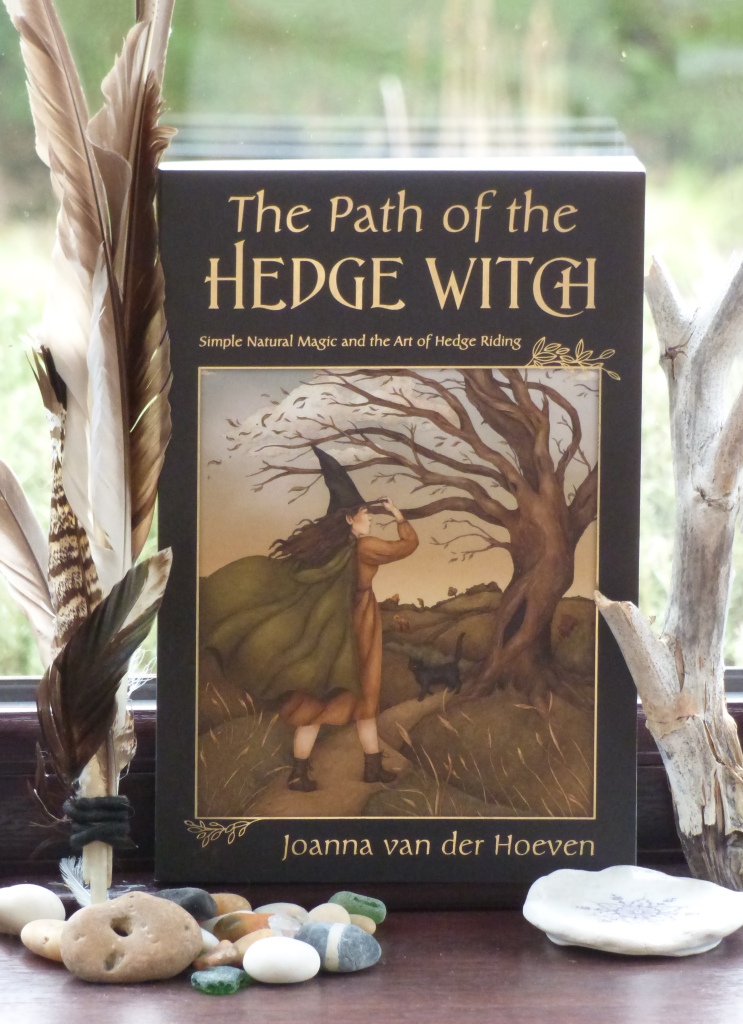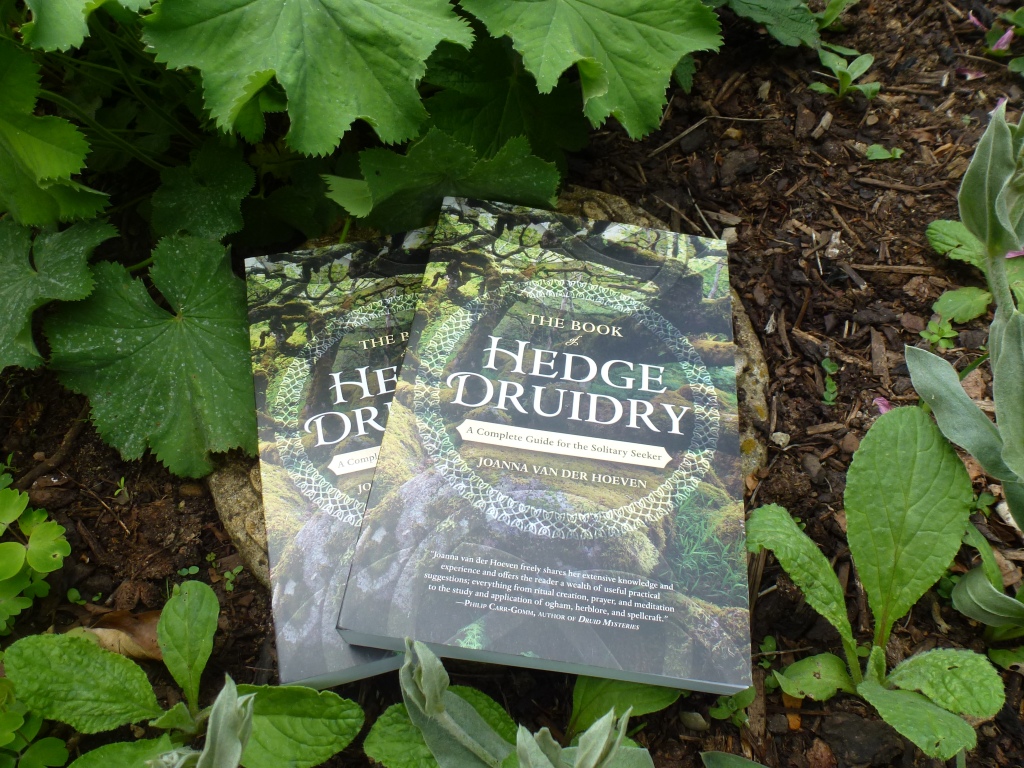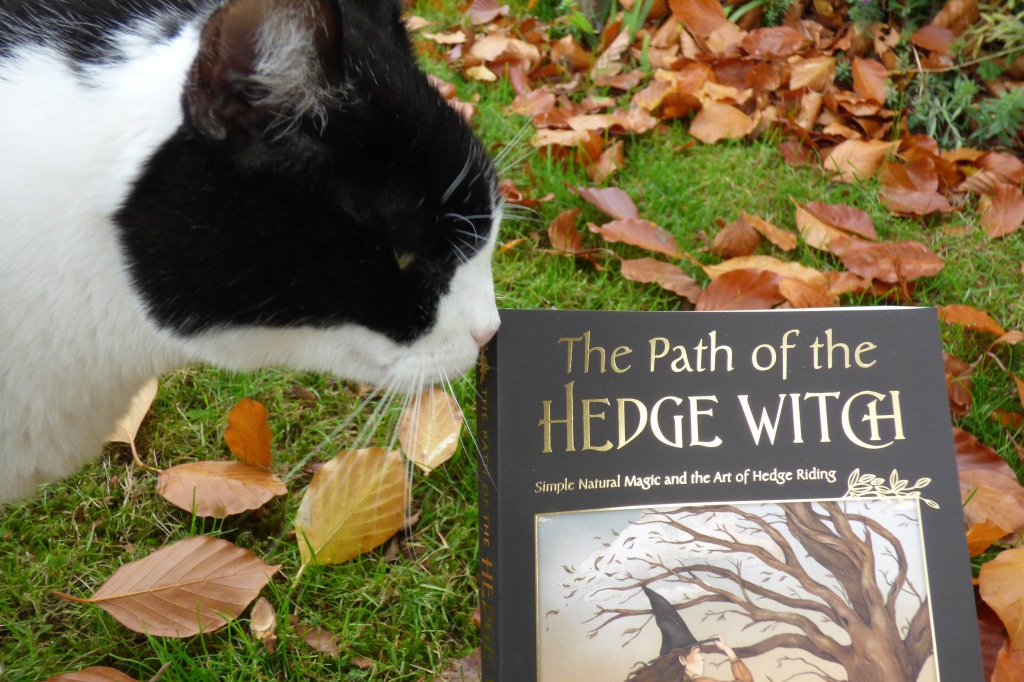It’s been 31 years since the beloved author, Scott Cunningham passed on from this life on 28 March 1993. Like many others in the Pagan community, I never knew Scott personally, though I felt that I knew him through his works which were a foundational part of my spiritual path, and which were the tools that opened my eyes to a wonderful earth-based spirituality.
It was the early ‘90s, and a magical Witchcraft shop had opened in Montreal. Melange Magique (The Magical Blend) was located right in the heart of downtown Montreal, on Ste Catherine Street West. I remember walking in and the first thing that I noticed was the amazing smell of handmade incense. It evoked something within me, something that I couldn’t describe at the time, but which I shall never forget and which changed me forever. I wandered the book section, with the cats that lived at the store lounging on shelves and wandering around underfoot. I came to a shelf dedicated to titles on Wicca. I had heard of Wicca only recently, from a course I was taking in college called “Magic, Religion and Science”. I picked up my first book on the subject of Paganism, and it was Scott’s Wicca: A Guide for the Solitary Practitioner. That book literally changed my life. It was the first Pagan book I ever touched, and I am so glad that I did.
Since then, I have read and bought every book that he ever published. And hundreds of other books from hundreds of other authors. Though my path has moved on from Wicca over the years to Druidry and Hedge Witchcraft, I still hold Scott’s words and ideals close to my heart. Yes, I call him Scott, as does everyone who ever read his books. The way that he wrote made you feel like you had a friend on this solitary, seekers path, one that had good advice and common sense. All of us GenXers who got into Paganism came across his works, learned from them and acknowledge (though sometimes grudgingly) that he was a seminal force for so many of us.
I see a growing trend in the last 5 – 10 years or so, of putting down Scott’s work. People say it’s outdated, that we’ve moved on from it, that it holds nothing for today’s Pagan practitioner. I say bollocks. I’ve reread all the books recently, and they still stand up fairly well, considering the time in which they were published. Material was difficult to come by back in the ‘80s and ‘90s, with only a few authors’ works widely available. There is little that I would argue about in his works, even today. Scott researched and tried out everything that he talks about, and so his works come from his own experience. He walked his talk and truly believed in his work and in his spiritual path.
He never claimed that his way of witchcraft was ancient. In fact, at the beginning of Wicca it is clearly established that this is a new tradition, and a new way of working in this spiritual path. He strongly advocated creating and designing your own rituals that work for you, in your particular area, for this was an earth-based path. This is something that I urge everyone to do still, because it means so much to work with your local environment and landscape, wherever that may be.
His style of writing was personal. It felt like he was talking directly to you. He urged the reader to explore, to try new things and not to do it his way, but to use that as inspiration. He also didn’t hold back when he had a strong opinion on certain topics, which I greatly appreciated. He wasn’t afraid to share his opinion, because it came from a strong and valid base of personal experience.
I still have the first editions of his books, because I bought them as they were being released, or within a few years of their initial release. Those early cover artworks, which so many people today often deride or make fun of, were that which sparked me into a magical way of thinking and being. On Wicca, the androgynous man in the robe wafting incense around his back garden by the light of the full moon, that image spoke to me and my romantic soul. I wanted to be that person, that person who chanted the names of the gods under the stars and who connected with the energies of life, death and rebirth that are all around us, all the time.
The woman on the cover of Living Wicca, well, I of course I wanted to be her: summoning or invoking the gods while the deer, rabbits and owls crowded around. And indeed I have had similar experiences over my years of practicing my Craft out in the wilds, calling upon my deities, the spirits of place, the ancestors and more. Never could I have imagined back then that it would become a reality, but it was a starting point and an ideal.
I wanted to know a goddess, a female divinity. I wanted the magic that we all have as children come back and be a part of my life in the present moment. These old book covers demonstrated that to me and more. They are now a backdrop to my life.
The covers have since changed, of course, to adapt to modern fashions and trends. But the contents within those books remain the same. The inner artwork of his books such as Earth Power and Earth, Air, Fire and Water still give me a little thrill. Illustrated by Robin Wood (who did the original covers of Wicca and the follow-up, Living Wicca), these art nouveau inspired drawings of people working Scott’s spells and rituals were instrumental in making me want to do these practices. This was a spiritual practice that was meant for me, I knew that when I saw these images. And I could do all these things and more. (See Robin Wood’s tarot deck, too, if you love tarot. It’s really, really good.)
I think that many (though not all) of the people who don’t enjoy Scott’s works are from a different generation. They don’t understand what it’s like having to travel miles out of your way to buy a book on any Pagan spiritual practice, because the internet hadn’t been available back then in Ye Olden Days. Comments picked up directly from Aamzon reviews read as:
“A theme with cunninghams books is that they are all tailored to the novice who has never picked up a book on wicca or read about it online.”
Nevermind not bothering with punctuation, but this review fails to notice that Scott’s books were written before material was available online. And there were only a handful of Pagan authors being published at that time, so there was very little material for the novice to read which is why Scott wrote this book in the first place. It’s utterly ignorant of the timeline of the books’ production, its history and the legacy that Scott provided. Sadly, there are dozens of reviews like that online, stating that the information is readily available online, so why buy the book – sigh. Read the boring copyright and publishing info at the beginning of a book, people: it will tell you a lot about a book, when it was written, how popular it has been with different printings, and whether it has been re-published or re-worked. Scott was never able to re-work his books for a modern-day audience, because he died far, far too soon. But I am certain that he would have, and would have enjoyed doing so.
Where do you think all these online sites got the information from, I wonder?
New generations of readers have so much access to material now, that I suppose for some these books may not contain what it is that they are seeking. But for those who want to sit down with an author and their book and really see what it is like working in a certain practice, there is no better alternative than reading a book. So much online material is simply copied and pasted from other sources (many of which derive from Scott’s works) without any heart, feeling or experience behind them. They are soulless.
There are also many reviews from ego-based practitioners, who just want to show off how advanced they are because they are so beyond Scott’s works. Again, sigh.
Is Scott’s work all about love and light? In some aspects, that may be what some people take away from it. But once again, we must remember the context in which the books were written, which is the late 80’s and early ‘90s when Wicca, especially in America, was trying to distance itself from the threat of the “Satanic Panic”. Do the books promote a love for the earth and a way to magically celebrate, work with the energies and reverence the earth? Yes, yes they do. And thank all the gods that they do.
I even recently tried Scott’s simple ritual for the Spring Equinox, taken directly from Wicca. This was going to be an experiment, to see whether this ritual would still have any meaning for me today, someone who has been on this Pagan path for more than 30 years. And you know what? It was lovely. It was a beautiful, simple ritual that connected me to the energies of the seasons, and which brought me closer to the spirits of place where I live.
His spell books such as Earth Power and Earth, Air & Fire Water are still great books for anyone practicing magic today. If you are more secular, then these are the books from Scott that you should read. His books on gems, magical herbalism and spellcrafts are also really good resources for anyone following a Pagan path.
It’s not just about sentimentality, or nostalgia. It’s about an author who changed the face of how we practice most, if not all modern Pagan paths today. His influence is so far-reaching, and yet so many people new to the Craft have no idea of the significance of Scott’s works. He is a beloved author for many, for good reason. He passed on way too soon from this incarnation, and I would have loved to see what his contemporary writing and works would have offered for today’s magical community.
It would have been wonderful to have journeyed with Scott through many subsequent books, but sadly we only have the ones that date from 1993 and earlier. There have been biographies written about Scott, such as Whispers of the Moon, which I highly recommend for anyone who has been touched by Scott’s work. Written by his friends, it’s a very good portrait of the person and makes him very real, outside of his Wiccan writing. It also demonstrates just how dedicated he was to his spiritual path, and just how much he walked his talk, always experimenting, always trying new things, always progressing on his own journeys. The newest biography, The Path Less Taken that came out in 2023 I found less interesting, and not as well-written though it was written by his sister. In this work she is open about the fact that she never read Scott’s works until after his death, and so knew very little about how he felt about his religion. The writing is disjointed, jumping all over the place timewise, and though most likely written from a place of love, falls short of actually portraying Scott as the magical pioneer that he was.
Would I still recommend Scott’s books to those who are interested in and just starting out on their path of Wicca? Most definitely. I would also recommend Marion Green’s A Witch Alone, Rae Beth’s Hedgewitch, Dorothy Morrison’s The Craft, Silver RavenWolf’s To Ride a Silver Broomstick, Starhawk’s The Spiral Dance and many other books of that generation. I know, I can hear many of you sighing from here. I would also suggest Thorn Mooney’s Traditional Wicca as well as The Witch’s Path, Jason Mankey’s Transformative Witchcraft, Danu Forest’s The Magical Year and anything Ellen Dugan has written, such as Seasons of Witchery and The Natural Witch (alongside ALL of her fiction work, especially the Legacy of Magick series).
Scott Cunningham’s legacy is one that still lives on today. And long may it continue.



